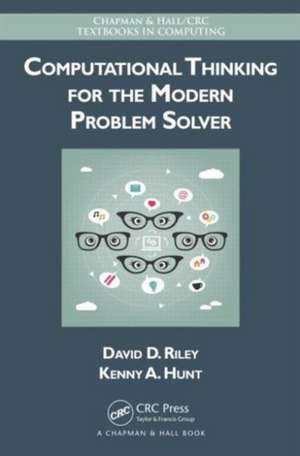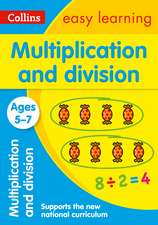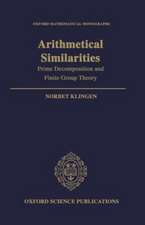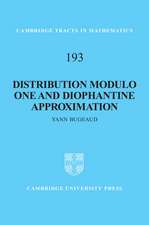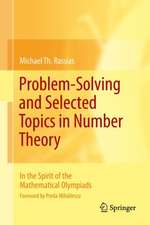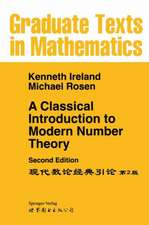Computational Thinking for the Modern Problem Solver: Chapman & Hall/CRC Textbooks in Computing
Autor David Riley, Kenny A. Hunten Limba Engleză Hardback – 27 mar 2014
With numerous color figures, this classroom-tested book focuses on both foundational computer science concepts and engineering topics. It covers abstraction, algorithms, logic, graph theory, social issues of software, and numeric modeling as well as execution control, problem-solving strategies, testing, and data encoding and organizing. The text also discusses fundamental concepts of programming, including variables and assignment, sequential execution, selection, repetition, control abstraction, data organization, and concurrency. The authors present the algorithms using language-independent notation.
Din seria Chapman & Hall/CRC Textbooks in Computing
- 8%
 Preț: 476.13 lei
Preț: 476.13 lei - 20%
 Preț: 468.94 lei
Preț: 468.94 lei - 20%
 Preț: 745.40 lei
Preț: 745.40 lei - 20%
 Preț: 566.10 lei
Preț: 566.10 lei - 20%
 Preț: 586.29 lei
Preț: 586.29 lei - 20%
 Preț: 643.08 lei
Preț: 643.08 lei - 20%
 Preț: 390.05 lei
Preț: 390.05 lei - 20%
 Preț: 1004.02 lei
Preț: 1004.02 lei - 30%
 Preț: 489.15 lei
Preț: 489.15 lei - 20%
 Preț: 690.64 lei
Preț: 690.64 lei - 20%
 Preț: 320.57 lei
Preț: 320.57 lei - 20%
 Preț: 374.08 lei
Preț: 374.08 lei - 20%
 Preț: 619.66 lei
Preț: 619.66 lei - 28%
 Preț: 266.34 lei
Preț: 266.34 lei - 20%
 Preț: 590.46 lei
Preț: 590.46 lei - 20%
 Preț: 761.07 lei
Preț: 761.07 lei - 20%
 Preț: 657.55 lei
Preț: 657.55 lei - 31%
 Preț: 323.84 lei
Preț: 323.84 lei - 30%
 Preț: 353.30 lei
Preț: 353.30 lei
Preț: 602.23 lei
Preț vechi: 661.78 lei
-9% Nou
Puncte Express: 903
Preț estimativ în valută:
115.23€ • 120.64$ • 95.35£
115.23€ • 120.64$ • 95.35£
Carte disponibilă
Livrare economică 15-29 martie
Livrare express 01-07 martie pentru 42.66 lei
Preluare comenzi: 021 569.72.76
Specificații
ISBN-13: 9781466587779
ISBN-10: 1466587776
Pagini: 406
Ilustrații: 273 colour illustrations
Dimensiuni: 156 x 234 x 25 mm
Greutate: 0.8 kg
Ediția:1
Editura: CRC Press
Colecția Chapman and Hall/CRC
Seria Chapman & Hall/CRC Textbooks in Computing
ISBN-10: 1466587776
Pagini: 406
Ilustrații: 273 colour illustrations
Dimensiuni: 156 x 234 x 25 mm
Greutate: 0.8 kg
Ediția:1
Editura: CRC Press
Colecția Chapman and Hall/CRC
Seria Chapman & Hall/CRC Textbooks in Computing
Cuprins
What Is Computational Thinking? How Real-World Information Becomes Computable Data. Logic. Solving Problems. Algorithmic Thinking. Modeling Solutions. Data Organization. Algorithmic Thinking. Let’s Get It Correct. Limits of Computation. Concurrent Activity. Information Security.
Descriere
Accessible to non-computer science majors, this classroom-tested book introduces computational thinking as part of an introductory computing course and shows how computer science concepts are applicable to other fields. With numerous color figures, the text focuses on both foundational computer science concepts and engineering topics. It covers abstraction, algorithms, logic, graph theory, social issues of software, and numeric modeling as well as execution control, problem-solving strategies, testing, and data encoding and organizing.
